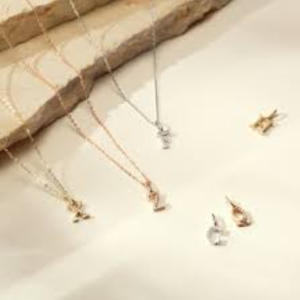
When it comes to purchasing fine accessories, many consumers find themselves wondering: “Jewellery or jewelry — which is better?” This common question doesn’t refer to a difference in quality but rather to a difference in spelling. Although they refer to the same items, the spelling and usage vary based on region. Understanding the history, cultural influence, and global preferences between “jewellery” and “jewelry” can help clarify which version is most suitable for your needs — especially in SEO, branding, or international marketing.
Understanding the Spelling Difference
The primary distinction between jewellery and jewelry is geographical. Both words describe decorative items made from precious metals and stones, such as rings, necklaces, bracelets, and earrings. However, the spelling varies between:
- Jewellery – British English (used in the UK, Canada, Australia, and New Zealand)
- Jewelry – American English (used in the United States)
This difference is similar to other spelling variations between British and American English, such as colour/color, favourite/favorite, and centre/center.
Which Spelling Is More Common?
The prevalence of “jewellery” or “jewelry” largely depends on the region:
- In the United States, “jewelry” dominates both spoken and written language. American businesses, fashion magazines, and eCommerce sites use this spelling exclusively.
- In the United Kingdom and Commonwealth nations, “jewellery” is the correct and preferred form.
Google Trends data reveals that “jewelry” has a higher global search volume. This is due to the sheer size of the U.S. market and its influence on global pop culture and commerce.
SEO Considerations: Jewellery vs. Jewelry
If you’re running an online store, blog, or business focused on accessories, the choice between “jewellery” and “jewelry” can significantly impact your search engine optimization (SEO). Here are some key SEO tips:
1. Target Your Primary Audience
- If your target audience is American, use “jewelry” to match their spelling preferences and search behavior.
- For audiences in the UK, Canada, Australia, or other Commonwealth countries, use “jewellery.”
2. Use Both Spellings (Strategically)
To capture international traffic, consider using both spellings:
- Write separate landing pages or blog posts targeting “jewellery” and “jewelry.”
- Use long-tail keywords like “fine jewelry for women” and “luxury men’s jewellery” to cover both variations.
3. Be Consistent
Avoid mixing both spellings in the same content. Pick one based on your audience and stick with it to maintain professionalism and brand consistency.
4. Use Geo-Targeted Domains
If you operate multiple websites for different countries, use local domains like:
.comfor the U.S. (use “jewelry”).co.ukfor the UK (use “jewellery”).cafor Canada (use “jewellery”)
Cultural Differences in Jewellery and Jewelry Preferences
While the spelling difference is superficial, cultural preferences in jewelry design and buying behavior vary between regions.
United States (Jewelry)
- Consumers tend to prefer modern and minimalistic designs.
- Diamonds, gold, and platinum are top choices.
- There’s a high demand for engagement rings and custom-made pieces.
United Kingdom & Commonwealth Nations (Jewellery)
- Preferences lean toward classic and vintage styles.
- Artisanal craftsmanship and ethical sourcing are highly valued.
- Jewellery is often passed down through generations and considered an heirloom.
Branding: Choosing the Right Word for Your Business
If you’re starting a jewelry business or building a brand, your choice of spelling may influence your perception, trust, and engagement. Here’s how to decide:
Use “Jewelry” If:
- Your business is based in or primarily sells to the United States.
- You want to align with trending SEO keywords in the American market.
- You plan to collaborate with American influencers or retailers.
Use “Jewellery” If:
- Your market is in the UK, Australia, or Canada.
- Your brand emphasizes British elegance, vintage aesthetics, or heritage.
- You are targeting a niche audience that values European craftsmanship.
Selling Internationally: Best Practices
For eCommerce stores and global retailers, it’s smart to localize content based on regional spelling and shopping behavior. Here are a few best practices:
- Auto-detect visitor location and display the appropriate spelling and currency.
- Offer multi-language and multi-spelling options for product descriptions.
- Use hreflang tags in your website code to indicate language and regional targeting to search engines.
Social Media and Hashtags
Spelling also affects your social media strategy. Hashtags are search-driven, and using the right version ensures better visibility. For instance:
- Jewelry has over 50 million posts on Instagram.
- Jewellery is used widely in UK-based and international fashion circles.
Using both versions in your posts or alternating them across campaigns can broaden your reach.
Conclusion: Which Is Better — Jewellery or Jewelry?
So, which is better — jewellery or jewelry?
The answer is: Neither is better in quality, only different in usage.
- Use “jewelry” if you’re targeting the American market.
- Use “jewellery” if your audience is in the UK, Australia, or other Commonwealth countries.
- For global reach, consider creating content that targets both spellings to maximize SEO potential and audience engagement.